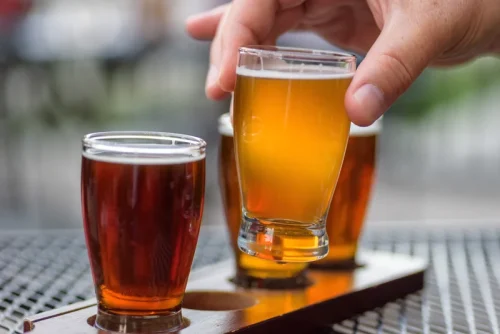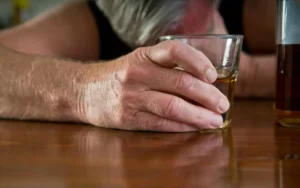
In other words, even once the worst is over, it might still take you a few days to feel better. However, for people with a condition called intractable sneezing, the matter is different. Using a nasal spray to clear the sinuses might help prevent a trigger from causing a sneeze. Prescription or OTC nasal spray may not be necessary for this. People with photic sneezing typically have a family history of the condition. They can help prevent photic sneezing by avoiding looking directly at bright lights and wearing sunglasses on sunny days.
- COVID-19 and the flu also spread differently, have different severity levels and a few different symptoms, and can be prevented by different vaccines.
- While rare, yeast allergy can cause an allergic reaction in some people.
- An alcohol allergy and alcohol intolerance are two different conditions.
- With a little research and careful label reading, you may be able to find beer that doesn’t contain that particular allergen.
How might COVID-19 affect this year’s flu season?
You had a long week, and you opened that bottle of wine to help you relax — but instead you wound up with a stuffy nose you now have to deal with. It doesn’t happen to everyone, but those who do get congested after a glass or two know just how much of a buzzkill it can be. Instead, they state that the data indicate that alcohol interacts with a component involving the body’s allergic response. If the sinuses become inflamed and swollen, a person may develop sinusitis. Avoid the beverage or beverages that seem to cause your reaction until your doctor’s appointment.
How is alcohol allergy diagnosed?
- A vaccine can prevent you from getting the COVID-19 virus or prevent you from becoming seriously ill if you get the COVID-19 virus.
- This article is not intended to be a substitute for professional medical advice or diagnosis.
- Getting vaccinated for COVID-19 and the flu can help reduce the spread of the viruses that cause these diseases.
The dilation then extends to blood vessels throughout your body, including those in your nose. There are several ways to diagnose an sneezing alcohol alcohol allergy or intolerance. Allergies occur when the body responds to an allergen (for example, an ingredient in beer).
- But what about if you feel funny while you’re still mid-drink?
- Most wine coolers and packaged martini mixes should also be struck from the list.
- Most people who think they have an alcohol allergy actually have an alcohol intolerance (also called acute alcohol sensitivity).
- We’ll also provide tips on avoiding sneezing when you drink.
- Always seek the advice of your physician or other qualified health provider with any questions you may have regarding a medical condition.
How to use the study?

Sneezing is usually not harmful, but it can be a nuisance. If drinking from a glass makes you sneeze, try drinking through a straw instead. This will help reduce your nose’s contact with the drink and make it less likely to trigger a sneeze. If you find that warm drinks make you sneeze, try chilling them before you drink them. This will help to soothe the mucous membranes in your nose and prevent them from swelling and triggering a sneeze. If you find that straight spirits make you sneeze, try diluting them with water or soda before you drink them.

- If severe vomiting is present, you may need to receive IV fluids so you don’t become dehydrated.
- Applying a cold compress to your nose will help to soothe the mucous membranes in your nose and reduce inflammation.
- Some signs of anaphylaxis include swelling, itching, tightening of the throat and mouth, a weak or rapid pulse, fainting, shock, and loss of consciousness.
- Sulfur dioxide is another closely related chemical that can trigger reactions in some people.
- However, for a severe skin reaction, weak pulse, vomiting or trouble breathing, seek emergency help right away, as you could be having an anaphylactic reaction.
- However, only two of the 68 participants have a medically diagnosed allergy.

